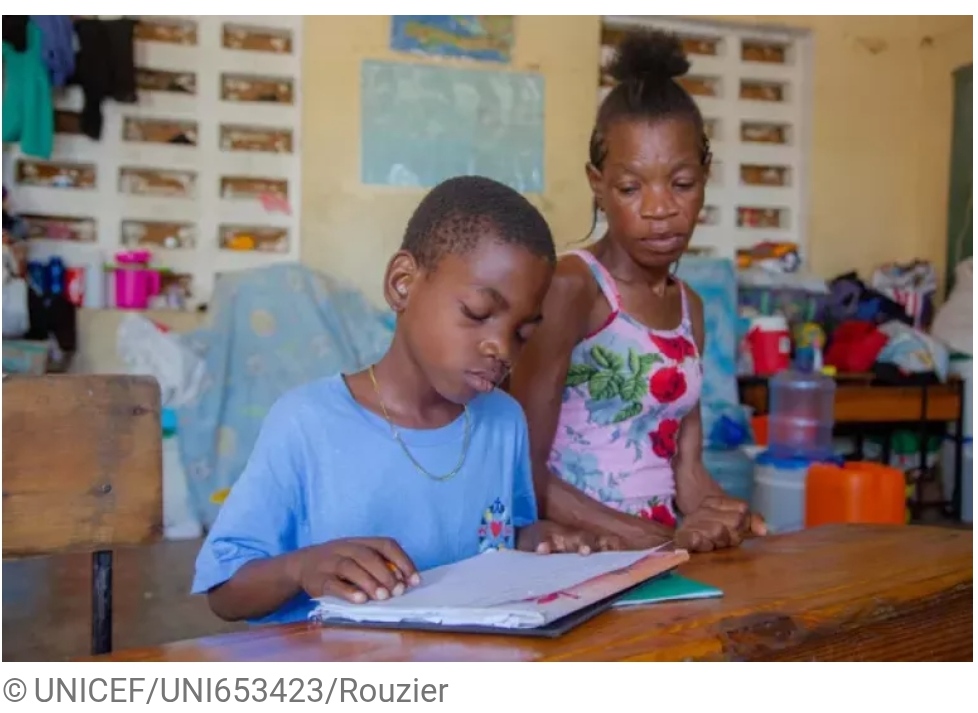Haiti’s Education Crisis Deepens as Armed Groups Destroy Schools and Displace Thousands of Children.
GENEVA:
The education crisis in Haiti has reached alarming levels, with armed groups ramping up attacks on schools and leaving hundreds of thousands of children without access to education. In a troubling development, 47 schools in the capital, Port-au-Prince, were destroyed in January alone. This adds to the 284 schools already destroyed in 2024, highlighting the escalating violence and its devastating impact on education.
The attacks, often violent and indiscriminate, have had a terrifying effect on the country’s education system. UNICEF reports that the violence is not only destroying physical structures but also traumatizing children, with recent videos capturing horrifying scenes of children huddled on the floor in fear during an attack. These attacks are not isolated; they serve as a constant reminder of the risks children in Haiti face when seeking education in the current climate of insecurity.
The ongoing violence, compounded by widespread displacement and worsening poverty, has caused a significant disruption in education. According to UNICEF, one in seven children in Haiti is now out of school, and nearly one million more are at risk of dropping out. Education, once seen as a lifeline for many Haitian families, is now under grave threat, leaving children vulnerable to further exploitation and recruitment by armed groups.
Last year, the recruitment of children into armed groups surged by a staggering 70%, with some as young as eight years old being coerced into joining these groups. Currently, up to half of all armed group members are children. Without access to education, these young individuals are increasingly at risk of falling into cycles of violence and exploitation. Experts emphasize that education is one of the most effective tools to break this cycle and offer children a better future.
Despite these challenges, Haitian families continue to value education highly. Literacy remains a prized achievement in the country, and families invest a significant portion of their income in ensuring their children receive an education. Yet, for many, education is becoming increasingly out of reach as schools are destroyed and the safety of learning environments deteriorates.
In response, UNICEF has stepped in, delivering both formal and non-formal education interventions. These include rehabilitating damaged schools, establishing temporary learning spaces, and reintegrating displaced children into schools. Catch-up classes are also being held to help children recover lost learning time due to the school closures. Additionally, UNICEF is providing school kits, cash transfers to ease the financial burden on families, and mental health and psychosocial support services to help children cope with the trauma of violence.
However, despite these efforts, the scale of the need far exceeds the available resources. UNICEF has launched an appeal for US$38 million to ensure that 600,000 children can continue their education in the midst of the crisis. This funding would cover the establishment of temporary learning spaces, more catch-up classes, and both formal and non-formal education initiatives. It would also support the rehabilitation of schools and provide children with essential school supplies. Alarmingly, only five percent of this funding goal has been met.
While peace and stability are desperately needed in Haiti, UNICEF stresses that financial support is equally critical. More than half a million children are currently not receiving the educational support they need, not because of armed groups, but due to a lack of donor funding. Without urgent intervention, the future of education in Haiti remains uncertain, and the long-term consequences for the nation’s children are dire.



